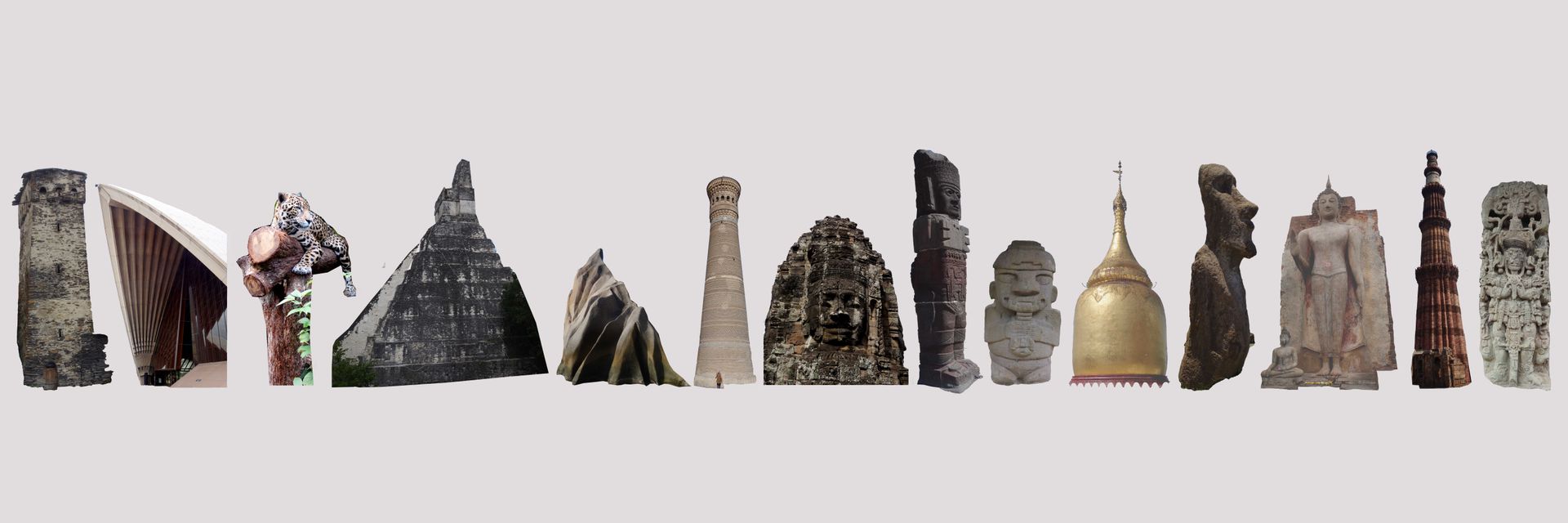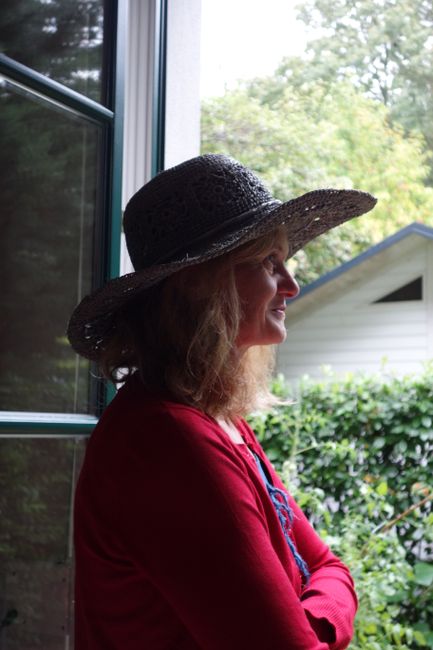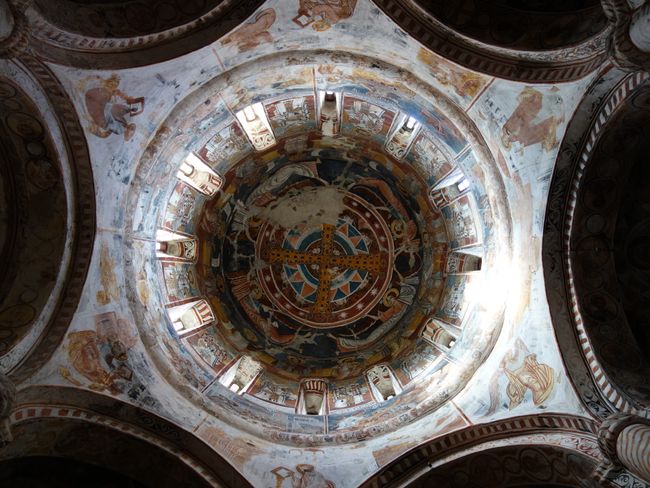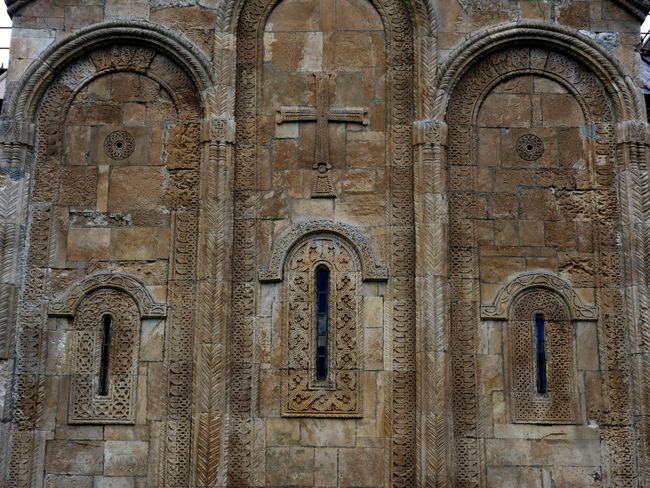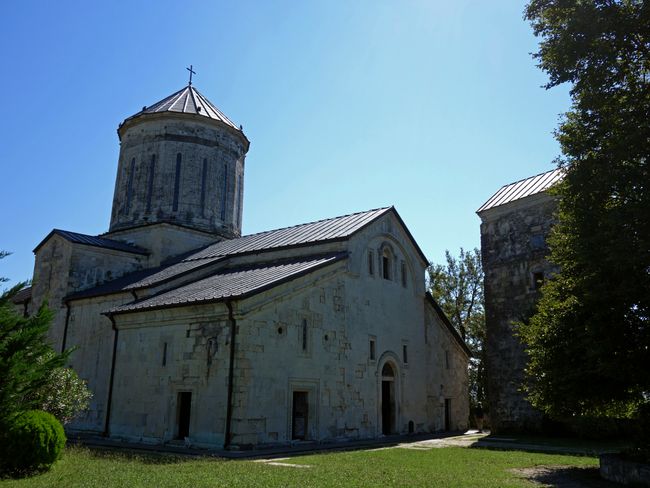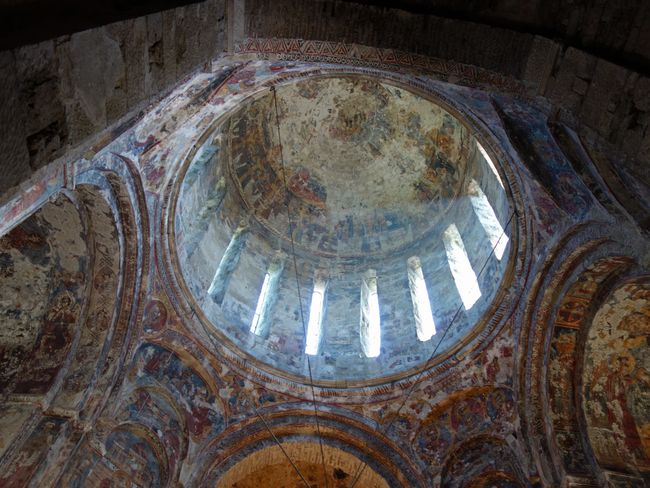Minor sights - but where!
Diterbitkeun: 12.09.2018
Ngalanggan Newsletter
Georgia has a lot of landscapes, amazing landscapes. Mountains (also very high), forests, highlands. You can drive for hours through these landscapes without coming across any significant human settlements. Okay, that's also because you can't drive very fast here: I think I've already mentioned the potholes, and mountain roads are also not suitable for speeding. But it's also because the population density is low. And so even small trips take their time on paper.
For example, we drive from Kutaisi towards the northeast to Nikortsminda in just under 1 1/2 hours - for not even 60 km. And then we stand there completely amazed in front of a jewel of a church (11th century). The fine stone carvings on the exterior are almost radiant, as the building has just been freshly renovated, and work is still being done on the dome. Through the scaffolding, beautiful ornaments can also be seen around the many windows on the outside. Inside, there is a wonderfully proportioned interior: a central dome, with six equally sized apses hanging like petals. And of course, the walls are covered with frescoes: from the 17th century, so a bit late for the style and therefore not the very best, but they are wonderfully suited to emphasize the great architecture. On the way back home, while having Turkish coffee, the landlord gives us a very special wine to taste, which only grows along a single river - a fine semi-sweet red is produced in the middle of the mountains. Hard to believe.
The next day, we set off from Kutaisi towards the northwest, on a much faster road towards the Black Sea, and reach the magnificent monastery church of Martvili (10th century). Like Nikortsminda, it sits on a hill, but it is much larger and less adorned on the outside. Only around the windows and especially around the doors, thin ornamental bands wind - and at the very top of the apse, there is a procession of angels and mythical creatures. Inside, again, a room of perfect beauty (if there is such a thing): this time a sequence of larger and slightly smaller apses - and of course, the walls are covered with frescoes (14th & 17th century), including some very successful ones. The whole area has an almost Mediterranean feel (is that because of the nearby sea?) and is a charming place, which hardly any tourists ever get lost in - just like Nikortsminda.
Ngalanggan Newsletter
Waleran
